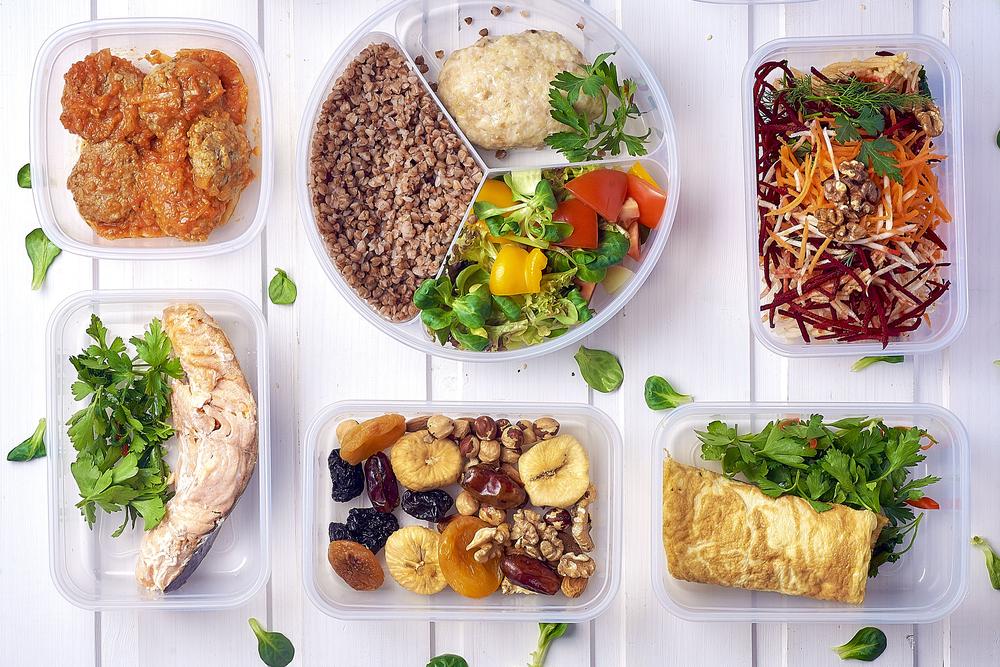Comprehensive Dietary Strategies for Effectively Managing Irritable Bowel Syndrome (IBS)
This comprehensive guide explores effective dietary strategies for managing Irritable Bowel Syndrome (IBS). It covers foods to avoid, various diet plans like high-fiber and gluten-free diets, and the importance of personalized nutrition. By following tailored dietary advice and making lifestyle adjustments, individuals with IBS can significantly reduce symptoms and improve quality of life. The article emphasizes the significance of professional guidance in developing an individualized plan, promoting hydration, and integrating healthy habits to support gut health and manage this chronic condition effectively.

In-Depth Dietary Approaches to Manage Irritable Bowel Syndrome
Irritable bowel syndrome (IBS) is a common gastrointestinal disorder characterized by a range of uncomfortable symptoms, including abdominal pain, cramping, bloating, diarrhea, and constipation. These symptoms can significantly impair daily activities, social interactions, and overall quality of life. Despite its prevalence, the exact causes of IBS remain elusive, but current research indicates a combination of factors such as abnormal nerve signaling within the gut, irregular gut motility, heightened pain sensitivity, bacterial overgrowth, genetic predispositions, food sensitivities, and environmental or psychological stressors.
Dietary management plays a pivotal role in controlling IBS symptoms. Dietary habits—including meal timing, hydration levels, and intake of certain substances—can influence the severity and frequency of flare-ups. For instance, skipping meals or consuming insufficient fluids can exacerbate symptoms, while excessive intake of alcohol, caffeine, or high-fat foods can trigger episodes. Additionally, psychological stress and hormonal fluctuations, particularly during menstrual cycles, may worsen gastrointestinal discomfort, with diet serving as a crucial modifiable factor to help mitigate these effects.
Although the digestive process in IBS patients appears similar to that of healthy individuals, the underlying issue lies in over-reactive nerves and muscular responses within the gastrointestinal tract. This hypersensitivity results in a lower threshold for discomfort from otherwise normal gastrointestinal activities. Moreover, hormonal responses triggered after eating—involving substances like serotonin and other neurotransmitters—may amplify symptoms regardless of the food ingested, complicating symptom management.
Foods to Limit or Avoid for IBS Relief
High-fat foods: Fried items, greasy snacks, and processed fast foods can accelerate gut distress.
Some dairy products: Milk, cheese, and yogurt containing lactose may worsen symptoms, especially in those with lactose intolerance.
Alcohol and caffeine: These beverages can stimulate the intestines, leading to increased diarrhea or cramping.
Artificial sweeteners: Found in sugar-free gum and candies, they may cause bloating and gas.
Gas-producing vegetables: Beans, cabbage, broccoli, cauliflower, and onions may increase intestinal gas and discomfort.
While medical treatments—such as medications and therapies—are often necessary, dietary modifications are a cornerstone of IBS management. Different dietary approaches work uniquely for each individual, and identifying the most effective strategy requires patience and personalized attention.
Implementing a High-Fiber Diet Increasing fiber intake to between 20 and 35 grams daily can help bulk stool, promote regularity, and reduce symptoms such as constipation. Prioritize fruits, vegetables, legumes, and whole grains that provide essential nutrients. For those experiencing bloating or gas, focusing on soluble fiber sources—like apples, berries, carrots, oats, and psyllium husk—can be gentler on the digestive system. Soluble fiber dissolves in water, forming a gel-like substance that helps normalize bowel movements without aggravating symptoms.
Opting for a Low-Fiber Diet In some cases, reducing total fiber—particularly insoluble fiber found in foods such as whole grains, nuts, seeds, and certain raw vegetables—may alleviate gas, bloating, and diarrhea. This approach might be beneficial for individuals with heightened sensitivities. It's advisable to introduce soluble fiber gradually and consider using anti-diarrheal medications as needed before making significant fiber restrictions.
Adopting a Gluten-Free Diet For individuals sensitive to gluten—found in wheat, barley, and rye—gluten avoidance can significantly reduce gastrointestinal symptoms. Many gluten-free options like rice, corn, quinoa, and gluten-free bread are widely available and can help improve quality of life by minimizing irritation and inflammation in the gut.
Using an Elimination Diet to Identify Triggers Temporarily eliminating common irritants such as caffeine, chocolate, spicy foods, or processed snacks allows individuals to observe changes in symptoms. Maintaining a food diary over 12 weeks helps pinpoint specific sensitivities, enabling tailored long-term dietary adjustments. This process requires patience but can be highly effective in reducing flare-ups and enhancing gut health.
Low-Fat Dietary Approach Reducing dietary fat is beneficial, especially for those with mixed IBS symptoms involving both diarrhea and constipation. Emphasize lean proteins like chicken, fish, and plant-based sources, while limiting fried foods and high-fat processed items. Incorporate plenty of fruits, vegetables, grains, and low-fat dairy to ensure nutritional adequacy without overloading the gastrointestinal system.
Developing Personalized Dietary Plans Since IBS manifests differently in each person, consulting with healthcare professionals—including dietitians or gastroenterologists—is essential to design a customized diet plan. Regular monitoring of symptoms in response to dietary adjustments helps optimize management and improve comfort. Adjustments may include trial-and-error with food elimination, fiber modifications, and other nutritional strategies tailored to individual needs.
In addition to dietary changes, maintaining good hydration—by drinking adequate water throughout the day—supports healthy digestion. Regular physical activity can also aid bowel movements and reduce stress, which are both important in managing IBS. Current guidelines from the National Institutes of Health promote minimizing alcohol and caffeine intake while encouraging balanced nutrition and stress management techniques to help prevent flare-ups and improve overall gut health.





